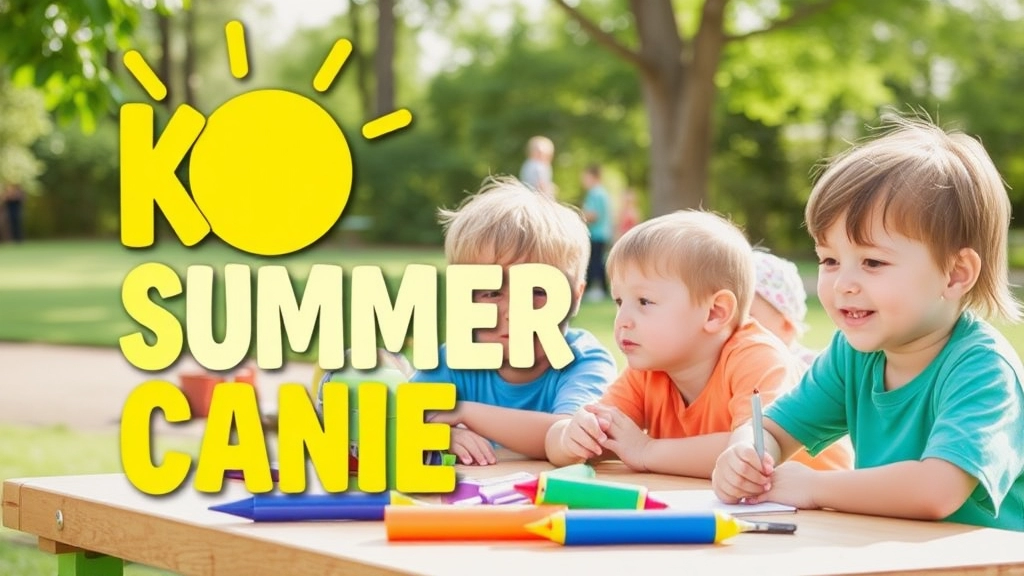Are you ready to make this summer unforgettable for your child?
Welcome to our comprehensive guide on Kids Summer Camps, where we explore everything you need to know to choose the perfect camp for your little one. From understanding the various types of camps available to the benefits of attending, this article will provide you with all the essential information and insider tips to ensure a fantastic summer experience.
What You’ll Discover
We’ll delve into how to select the right camp based on your child’s interests, how to prepare them for their adventure, and the crucial safety measures you should look for. You’ll also find packing essentials, cost considerations, and even virtual and hybrid camp options.
Additional Resources
- Testimonials from other parents
- Answers to frequently asked questions
This guide is your one-stop resource for making informed decisions and giving your child a summer to remember.
Types of Kids Summer Camps
Alright, so you’re thinking about summer camps for your kids. But where do you start? What types of camps are out there? And how do you know which one’s the right fit? Let’s break it down.
What Are the Different Types of Kids Summer Camps?
Traditional Camps
These are your classic summer camps. Think cabins, campfires, and canoeing. Kids get a taste of everything from hiking to arts and crafts. It’s like a sampler platter of fun.
Sports Camps
Got a little athlete on your hands? Sports camps focus on specific activities like football, basketball, or swimming. They’re all about skill-building and teamwork.
Academic Camps
These camps are perfect for kids who love to learn. Whether it’s science, maths, or even coding, academic camps make learning exciting. Imagine a classroom with no desks and way more experiments. If that sounds interesting, check out our guide on best STEM education summer camps for kids.
Adventure Camps
For the thrill-seekers. Adventure camps are all about rock climbing, zip-lining, and exploring the great outdoors. It’s about pushing boundaries and discovering new passions.
Arts Camps
If your child is into painting, acting, or music, arts camps are the way to go. They offer creative workshops and performances, letting kids express themselves in unique ways. For more information, you can explore our ultimate guide to top art camps for summer 2024.
Special Needs Camps
These camps cater to children with specific needs, ensuring they have a safe and enjoyable experience. It’s all about inclusivity and specialised care.
Day Camps
Not ready for an overnight commitment? Day camps offer all the fun without the sleepover. Kids get to enjoy activities during the day and return home in the evening.
Specialty Camps
These are niche camps focusing on unique interests like robotics, cooking, or even horseback riding. If your kid has a specific passion, there’s probably a camp for it.
Why Does the Type of Camp Matter?
Choosing the right type of camp can make or break your child’s summer. It’s about matching their interests and comfort levels with what the camp offers. The right fit means they’ll come back with stories, new skills, and maybe even a few lifelong friends.
Quick Tips for Choosing the Right Camp:
- Know Your Child’s Interests: What do they love doing in their free time?
- Consider Their Personality: Are they more introverted or extroverted?
- Think About Goals: Do they want to learn something new or just have fun?
- Location Matters: How far are you willing to travel?
- Budget Wisely: Camps can vary greatly in cost.
Benefits of Attending Summer Camps
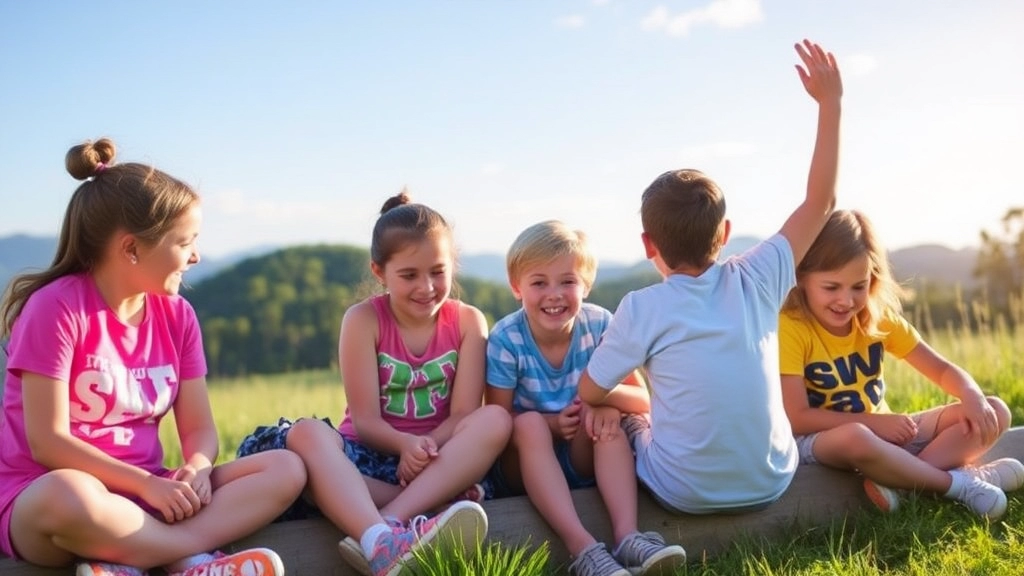
Ever wondered why sending your kid to a summer camp is a good idea?
Well, let’s dive in.
1. Social Skills and Friendships
Kids make friends at camp. Real friendships. Not the kind they get from a screen.
They learn to communicate, share, and work together.
2. Independence and Confidence
Summer camps are like a training ground for independence.
Kids handle their own stuff, make decisions, and gain confidence.
3. Physical Activity
Forget about the couch. Camps are all about running, swimming, and playing.
It’s a full-on workout disguised as fun.
4. New Hobbies and Skills
Ever seen your kid try archery or rock climbing?
Summer camps introduce them to new activities they might never try otherwise.
5. Unplugging from Technology
No tablets, no phones.
Just nature, games, and real-life interaction.
6. Coping with Homesickness
It’s tough at first, but overcoming homesickness builds resilience.
They learn to cope with being away from home.
7. Emotional Growth
Kids face challenges at camp.
Solving problems and dealing with emotions helps them grow emotionally.
8. Educational Benefits
Some camps sneak in learning with fun.
Think science camps, coding camps, or even history-themed camps.
9. Environmental Awareness
Being in nature teaches kids to appreciate and respect the environment.
They learn about conservation and sustainability.
10. Lifelong Memories
Ask any adult about their camp memories.
They’ll light up. Those memories stick.
Real Talk:
I remember my first camp. I was nervous, but I came back with stories, friends, and a new sense of self.
That’s the magic of summer camps.
So, if you’re on the fence about sending your kid to camp, consider these benefits.
It’s more than just a break from school. It’s a break that builds them up.
How to Choose the Right Camp
Choosing the right summer camp for your child can feel like a high-stakes decision, right? You’re probably asking yourself, “What if my kid hates it?” or “Is this camp safe?” Don’t worry, we’ve all been there. Let’s break it down so you can make an informed choice without losing sleep.
Identify Your Child’s Interests and Needs
First things first, what’s your kid into? Are they sports fanatics, budding artists, or science geeks? Knowing their interests can help you narrow down the options. No point in sending a bookworm to a football camp, right?
- Sports Camps: Perfect for active kids who love physical activities.
- Arts Camps: Ideal for those who enjoy painting, music, or drama.
- Academic Camps: Great for kids who want to dive deeper into subjects like science, math, or literature.
Consider the Camp’s Reputation and Reviews
Next, do your homework. Check out reviews from other parents. Look for camps with a solid reputation and positive testimonials. Sites like Trustpilot or Google Reviews can be goldmines for honest feedback.
- Word of Mouth: Ask friends, family, or even your kid’s teachers for recommendations.
- Online Reviews: Look for detailed reviews that mention safety, staff quality, and overall experience.
Evaluate Safety Measures and Staff Qualifications
Safety is non-negotiable. Make sure the camp has robust safety protocols in place. This includes background checks for staff, first aid training, and clear emergency procedures.
- Staff-to-Camper Ratio: Lower ratios mean more individual attention and better supervision.
- Medical Facilities: Ensure there’s a nurse or medical professional on-site.
Assess the Camp’s Schedule and Flexibility
Flexibility can be a lifesaver. Some camps offer day programs, while others are overnight. Consider what fits best with your family’s schedule and your child’s comfort level.
- Day Camps: Ideal for younger kids or those not ready for overnight stays.
- Overnight Camps: Great for older kids looking for a more immersive experience.
- Virtual and Hybrid Options: Perfect for those who prefer staying closer to home.
Budget and Hidden Costs
Let’s talk money. Camps can be pricey, so make sure you understand the full cost. Some camps have hidden fees for activities, meals, or equipment.
- All-Inclusive Camps: These can be more expensive but might save you money in the long run.
- Scholarships and Discounts: Some camps offer financial aid or early-bird discounts.
Visit the Camp (If Possible)
Seeing is believing. If you can, visit the camp beforehand. This gives you a feel for the environment and lets you meet the staff.
- Open Houses: Many camps offer open house events where you can tour the facilities.
- Virtual Tours: If an in-person visit isn’t possible, see if the camp offers virtual tours.
Involve Your Child in the Decision
Finally, get your kid’s input. After all, they’re the ones who will be attending. Discuss the options and see what excites them the most.
- Pros and Cons List: Make a list together to weigh the benefits and drawbacks of each camp.
- Trial Days: Some camps offer trial days or weekends. This can be a great way for your child to test the waters.
Choosing the right camp doesn’t have to be a stressful ordeal. By considering your child’s interests, evaluating safety measures, and involving them in the decision, you can find a camp that’s a perfect fit. Trust me, the right camp can be a game-changer for both you and your child.
For instance, if your child loves sports, you might want to check out the LIU Men’s Volleyball Camp 2024. On the other hand, if they’re into science and technology, the STEM Gem Summer Camp at Georgia Tech could be the perfect fit.
Preparing Your Child for Camp
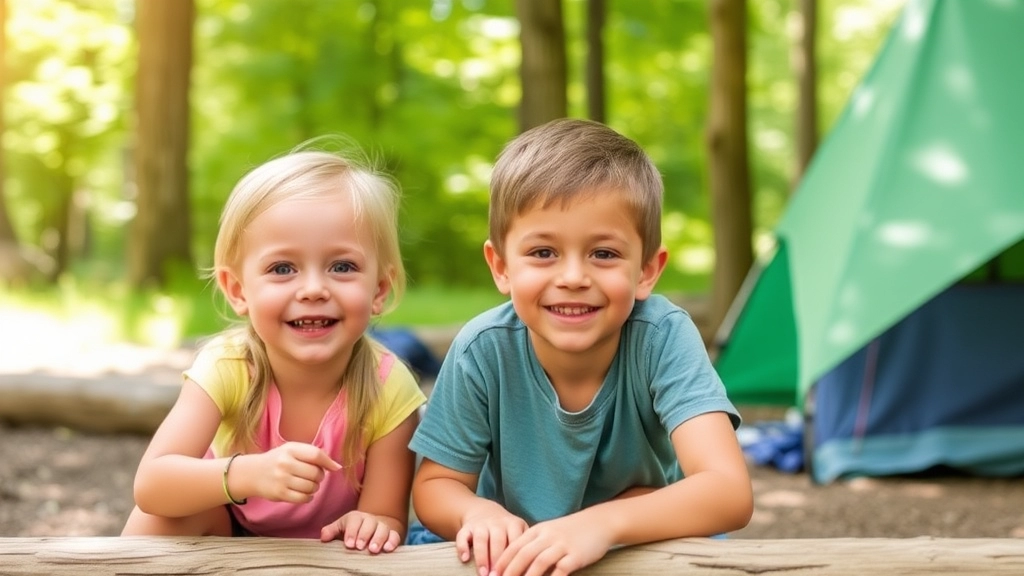
Worried about sending your kid to camp for the first time?
You’re not alone.
Every parent wants to make sure their child is ready for the adventure.
Let’s break it down step-by-step.
Start with a Conversation
Talk it out.
- Explain what camp is all about.
- Share your own camp stories if you have them.
- Answer their questions honestly.
Visit the Camp
If possible, take a tour.
- Show them the cabins, dining hall, and activity areas.
- Meet some of the staff.
- Familiarity can ease anxiety.
Pack Together
Packing isn’t just about clothes.
- Make a checklist.
- Include comfort items like a favourite stuffed animal or blanket.
- Pack some letters or pictures from home.
Practice Independence
Build confidence.
- Let them spend a night at a friend’s house.
- Encourage them to manage small tasks on their own.
- Teach them to pack their own bag.
Discuss Expectations
Set the stage.
- Talk about making new friends.
- Discuss the camp rules.
- Explain the daily schedule.
Address Fears
Tackle worries head-on.
- Afraid of the dark? Pack a nightlight.
- Worried about homesickness? Plan to write letters.
- Not sure about the food? Look at the menu together.
Role-Playing Scenarios
Prepare for the unexpected.
- What to do if they feel homesick.
- How to ask for help.
- Handling disagreements with other kids.
Stay Positive
Your attitude matters.
- Be enthusiastic.
- Highlight the fun activities.
- Reassure them it’s okay to miss home.
Communication Plan
Stay connected.
- Set up a schedule for calls or letters.
- Explain the camp’s communication policy.
- Make sure they know how to reach you in an emergency.
Final Pep Talk
Boost their confidence.
- Remind them they’re going to have a blast.
- Tell them you’re proud of their bravery.
- Encourage them to try new things.
By taking these steps, you’re setting your child up for a fantastic camp experience.
Ready to pack those bags?
Your kid is going to have the time of their life!
Related Topics:
FAQ:
- What if my child doesn’t like camp?
- How do I know if my child is ready for camp?
Testimonials:
Check out what other parents are saying about their camp experiences.
Safety Measures and Protocols
When it comes to sending your child to a summer camp, safety is likely your top concern. You might be wondering, “How can I be sure my child will be safe?” or “What protocols are in place to handle emergencies?” These are valid questions, and trust me, you’re not alone in asking them. Let’s dive into the nitty-gritty of what you should look for when it comes to safety measures and protocols at summer camps.
Why Safety Measures Matter
First off, why are safety measures so crucial? Well, summer camps are bustling with activitiesâfrom swimming to hiking to arts and crafts. Each of these activities carries its own set of risks. Ensuring that a camp has robust safety protocols can give you peace of mind and let your child enjoy their experience to the fullest.
Key Safety Measures Every Camp Should Have
Every reputable summer camp should have a comprehensive set of safety measures. Here’s a breakdown of what to look for:
- Qualified Staff: Ensure the camp employs trained professionals who are certified in first aid and CPR. Ask about their hiring process and the qualifications of their staff.
- Emergency Plans: The camp should have clear, well-documented emergency procedures for various scenarios like medical emergencies, natural disasters, and missing children.
- Health Protocols: Especially in today’s world, camps should have stringent health protocols, including regular health checks, sanitisation routines, and isolation procedures for sick children.
- Supervision: There should be a low camper-to-counsellor ratio to ensure adequate supervision. Typically, a ratio of 1:6 for younger kids and 1:10 for older kids is considered safe.
- Safety Gear: For activities like swimming, hiking, or climbing, ensure the camp provides and enforces the use of appropriate safety gear.
Real-Life Examples
Think about it like this: Imagine your child is at a camp that focuses on water sports. You’d want to know that the lifeguards are not only certified but also experienced. A good camp will have lifeguards who undergo regular training and drills. For instance, Camp Sunshine in Devon ensures that their lifeguards participate in monthly training sessions to keep their skills sharp.
Questions to Ask the Camp
When you’re evaluating a camp, don’t hesitate to ask tough questions. Here’s a quick list to get you started:
- What is your staff-to-camper ratio?
- Are your staff members trained in first aid and CPR?
- What is your procedure for handling emergencies?
- How do you manage allergies and special dietary needs?
- What measures are in place to prevent bullying?
Safety Certifications and Accreditations
Look for camps that are accredited by reputable organisations like the British Activity Providers Association (BAPA) or the American Camp Association (ACA). These accreditations mean the camp meets high standards for safety and quality.
For a comprehensive guide on various types of camps and their features, you might want to check out our Summer Camp Cabin Guide. Additionally, if you’re interested in knowing more about the costs associated with summer camps, our article on Summer Camp Costs provides detailed insights.
Packing Essentials for Camp
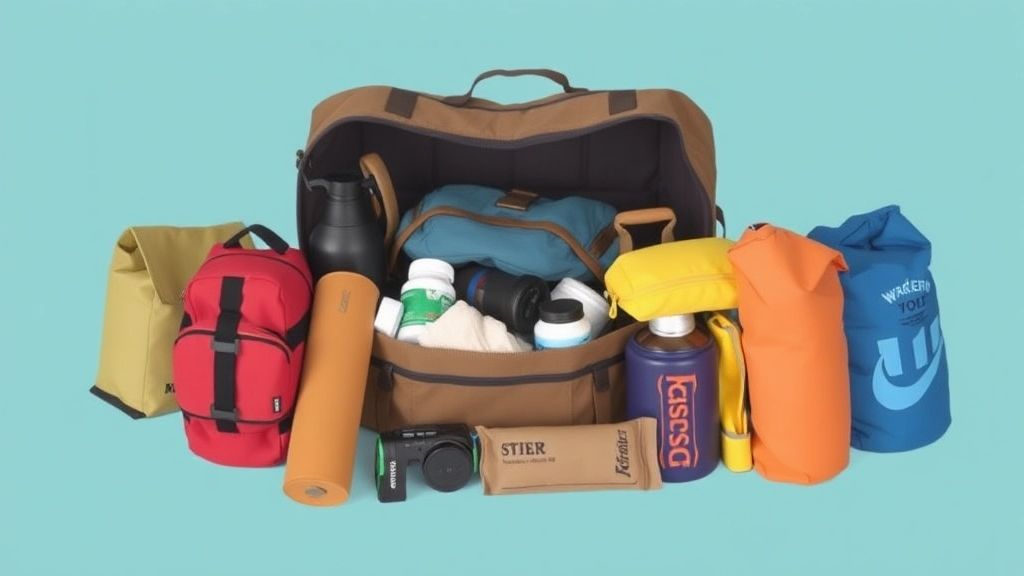
Alright, let’s talk about packing for summer camp. What do you really need to bring? What can you leave at home? Here’s the lowdown.
Real Questions and Worries
- “Will my child have everything they need?”
- “What if they forget something important?”
- “How do I pack without overpacking?”
First off, relax. We’ve all been there. Packing can feel like a nightmare, but it doesn’t have to be.
The Must-Haves
Clothing Essentials:
- Comfortable Clothes: Think T-shirts, shorts, and a couple of long sleeves for cooler evenings.
- Swimwear: At least two swimsuits. Trust me, they’ll need them.
- Pyjamas: A couple of pairs. No one likes sleeping in sweaty PJs.
- Rain Gear: A lightweight raincoat or poncho. Because, you know, weather.
Footwear:
- Trainers: For all those activities.
- Sandals: Something easy to slip on.
- Water Shoes: If there’s a lake or pool.
Toiletries:
- Toothbrush & Toothpaste: No brainer.
- Shampoo & Soap: Travel-size works.
- Sunscreen: SPF 30 or higher. Sunburns are a no-go.
- Bug Spray: Mosquitoes are the worst.
Bedding:
- Sleeping Bag: Essential for overnight camps.
- Pillow: A small, comfy one.
- Blanket: Just in case it gets chilly.
The Nice-to-Haves
Extras:
- Books/Journal: For downtime.
- Camera: Disposable ones are great.
- Flashlight: With extra batteries.
- Water Bottle: Staying hydrated is key.
Pro Tip: Label everything. Trust me, kids lose stuff all the time.
What to Leave at Home
- Electronics: Phones, tablets, and gaming devices. They’re there to unplug.
- Valuables: Expensive jewellery or anything irreplaceable.
- Food: Most camps provide meals and snacks.
Personal Story
When I went to camp as a kid, I forgot my trainers. I spent the first day in flip-flops. Not fun when you’re trying to climb a rock wall. Lesson learned: Double-check your list.
Internal Linking Opportunities
- Safety Measures and Protocols: Make sure to review the camp’s safety guidelines before packing.
- Preparing Your Child for Camp: Get them involved in packing to ease their anxiety.
Virtual and Hybrid Camp Options
Are Virtual and Hybrid Camps Worth It?
Alright, let’s talk about something that’s been on every parent’s mind lately: virtual and hybrid camps. With all the chaos happening around the world, you’re probably wondering if these options are any good. Can they really replace the traditional summer camp experience? Let’s dive in.
Why Consider Virtual and Hybrid Camps?
First off, what are virtual and hybrid camps? Simply put, virtual camps are entirely online, while hybrid camps mix online activities with in-person elements. Here’s why you might want to consider them:
- Flexibility: Your child can join from anywhere, even if you’re on a family holiday.
- Safety: No need to worry about social distancing or health protocols.
- Variety: A broader range of activities and subjects, from coding to arts and crafts.
What Do Virtual Camps Offer?
You might be sceptical about how engaging a virtual camp can be. Trust me, these camps have come a long way. Here’s a glimpse of what they offer:
- Interactive Sessions: Live classes where kids can ask questions and interact with instructors.
- Group Projects: Opportunities to collaborate with other children, fostering teamwork.
- Physical Activities: Yes, even online, they have ways to get kids moving, from yoga to dance sessions.
Hybrid Camps: The Best of Both Worlds
Hybrid camps are a fantastic middle ground. They offer the convenience of online learning with the added benefit of occasional in-person meetups. This can be a great way for your child to:
- Socialise: Meet new friends in a safe, controlled environment.
- Hands-on Learning: Engage in activities that are hard to replicate online, like science experiments or sports.
- Flexibility: Enjoy a mix of structured online sessions and free play during in-person days.
Choosing the Right Virtual or Hybrid Camp
So, how do you pick the best one? Here are some tips:
- Check Reviews: Look for testimonials from other parents.
- Ask About Technology: Make sure they use reliable platforms and have tech support.
- Evaluate Content: Ensure the camp offers activities that align with your child’s interests.
Real Stories from Parents
I’ve heard from several parents who were initially hesitant but ended up loving the experience. One mum told me her daughter learned to code and even made a simple game by the end of the camp. Another parent mentioned how their son, who’s usually shy, became more confident after presenting a project to his virtual campmates.
Cost and Budget Considerations for Summer Camps
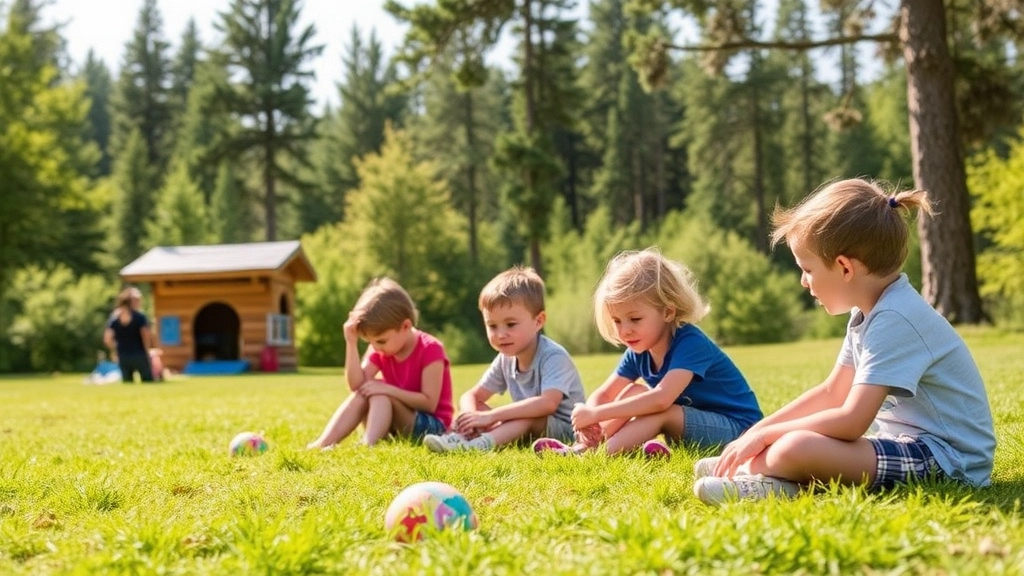
Alright, let’s talk about something that’s on every parent’s mind: cost and budget considerations for summer camps.
How Much Is This Going to Cost Me?
We all know the feeling—summer’s coming, and you’re wondering if you can afford a camp for your kid.
Here’s the deal:
Summer camps vary in price.
You’ve got everything from budget-friendly day camps to high-end sleepaway camps.
So, how do you decide what’s worth it?
Breaking Down the Costs
Think about:
- Tuition Fees: The big one. This is your main expense.
- Extra Activities: Horse riding or arts and crafts might cost extra.
- Travel Expenses: If it’s far, factor in transport costs.
- Gear and Supplies: Some camps require specific gear. Make a list.
Budgeting Tips
Here’s how I keep it real:
- Set a Budget: Know what you can spend before you start looking.
- Compare Camps: Don’t just pick the first one. Look around.
- Ask About Discounts: Some camps offer early bird specials or sibling discounts.
- Consider Payment Plans: Spread out the cost if you can.
Real Talk: Is It Worth It?
I once had a chat with a friend over coffee.
She was stressing about sending her kid to a pricey camp.
But here’s the thing:
The experience, the skills, the memories—sometimes they’re worth every penny.
Testimonials and Reviews from Parents
Worried about choosing the right summer camp for your child? You’re not alone. Many parents, just like you, are on this quest. Let’s dive into real stories and insights that can help ease your decision-making process.
Why Parent Reviews Matter
When it comes to summer camps, parent testimonials can be a goldmine of information. They offer genuine insights into what you can expect. Here’s why they’re crucial:
- Real Experiences: Parents share firsthand experiences, giving you a peek into the camp’s daily life.
- Trustworthy Feedback: Honest opinions about the staff, activities, and overall vibe.
- Practical Tips: From packing essentials to preparing your child emotionally.
Common Concerns Addressed
Safety is a top concern. Many parents worry about supervision and emergency protocols. Reviews often highlight how camps handle these aspects.
Activities and Engagement: Are the activities engaging enough? Do they cater to your child’s interests? Parents often discuss how their kids felt about the camp’s offerings.
Social Environment: Will my child make friends? Testimonials frequently touch on the social dynamics and how inclusive the camp is.
Stories from Parents
Let me share a story. Jane, a mother of two, was sceptical about sending her 8-year-old to camp. She stumbled upon a review from another parent who had similar concerns. The review detailed how the camp staff were attentive and how her child came back more confident. This was the reassurance Jane needed.
Another parent, Tom, found a camp that offered a unique blend of sports and arts, thanks to detailed reviews. His child, who loves both, had the time of their life.
What to Look for in Reviews
When sifting through testimonials, keep an eye out for:
- Consistency: Look for recurring themes in reviews. If multiple parents praise the same aspect, it’s likely a strong point.
- Specifics: Vague reviews are less helpful. Seek out specific examples and stories.
- Balanced Views: A mix of pros and cons can offer a more rounded perspective.
Making the Most of Reviews
Use reviews as a starting point in your decision-making. Combine them with other resources like the camp’s official website, virtual tours, and direct conversations with camp staff. This holistic approach ensures you’re making an informed choice.
For more information on choosing the best camp, check out our top summer camps in Greenville, SC guide.
Frequently Asked Questions About Summer Camps
Got questions about summer camps?
You’re not alone.
Let’s dive into the most common concerns parents have.
1. What types of activities will my child do?
Activities vary from camp to camp.
But expect stuff like:
- Sports: Football, swimming, archery
- Arts and crafts: Painting, pottery, DIY projects
- Outdoor adventures: Hiking, canoeing, zip-lining
- Educational workshops: Science experiments, coding, nature studies
2. How do I know my child will be safe?
Safety is a big deal.
Camps usually have:
- Trained staff: First aid, CPR, and specific activity training
- Strict protocols: Regular headcounts, emergency plans
- Health checks: Before and during camp
3. What if my child gets homesick?
Homesickness happens.
Here’s how camps handle it:
- Buddy systems: Pairing new campers with veterans
- Counselor support: Staff trained to comfort and distract
- Scheduled calls: Pre-set times to talk to you
4. What should I pack for my child?
Packing can be a headache.
Here’s a basic list:
- Clothing: Enough for the entire stay, plus extras
- Toiletries: Toothbrush, soap, shampoo
- Bedding: Sleeping bag, pillow
- Special items: Medications, comfort items
5. Are there camps for kids with special needs?
Absolutely.
Many camps cater specifically to:
- Physical disabilities
- Learning disabilities
- Emotional and behavioural needs
6. How much does it cost?
Costs vary widely.
Factors include:
- Duration: A week vs. the entire summer
- Location: Local vs. international
- Type of camp: Day camp vs. overnight camp
7. Can I get financial aid?
Yes, many camps offer:
- Scholarships
- Sliding scale fees
- Payment plans
8. What’s the food situation?
Camps usually provide:
- Balanced meals: Breakfast, lunch, dinner
- Snacks: Healthy options throughout the day
- Special diets: Vegetarian, gluten-free, nut-free
9. How do I stay in touch with my child?
Communication options include:
- Letters and emails
- Scheduled phone calls
- Camp apps: Some camps use apps to share updates and photos
10. What if my child doesn’t like it?
It happens.
Most camps offer:
- Trial periods
- Refund policies
- Counselor intervention: To make the experience better
Still have questions?
Drop a comment below or check out our detailed guide on summer camp costs.
Remember, summer camps can be a life-changing experience for your child.
So, don’t stress too much.
For more tips on keeping your camper comfortable, read our article on keeping your camper cool in summer.
You’ve got this.
FAQs About Kids Summer Camps
What are the key benefits of sending my child to a summer camp?
Summer camps offer numerous benefits including improved social skills, increased independence, physical activity, exposure to new hobbies, and emotional growth. Kids also get a chance to unplug from technology and develop environmental awareness.
How can I prepare my child for their first camp experience?
Start by having a conversation about what camp entails, visit the camp if possible, and pack together. Practice independence by letting them spend a night at a friend’s house and discuss expectations. Address any fears they may have and stay positive throughout the process.
What essentials should my child pack for camp?
Essential items include comfortable clothing, swimwear, pyjamas, rain gear, trainers, sandals, water shoes, toiletries, and bedding. Extras like books, a camera, a flashlight, and a water bottle can also be useful. Be sure to label everything to avoid losing items.
What should my child leave at home?
Leave electronics, valuables, and food at home. The camp will provide meals and snacks, and the goal is for kids to unplug and enjoy the experience.
How much do summer camps typically cost?
Costs can vary widely depending on the type of camp. Factors include tuition fees, extra activities, travel expenses, and required gear. It’s important to set a budget, compare different camps, and ask about discounts or payment plans.
What if my child doesn’t like camp?
It’s natural for kids to feel homesick or unsure at first. Encourage them to give it a chance and remind them that it’s okay to miss home. Most camps have staff trained to help kids adjust and have a positive experience.
How do I know if my child is ready for camp?
Consider their level of independence, ability to follow rules, and interest in camp activities. If they can handle sleepovers with friends and manage small tasks on their own, they are likely ready for camp.
Are there any safety measures and protocols in place at camps?
Yes, most camps have strict safety measures and protocols, including trained staff, emergency procedures, and health guidelines. It’s a good idea to review these policies before sending your child to camp.
Can I communicate with my child while they are at camp?
Many camps have specific communication policies, such as scheduled calls or letter writing. Make sure to understand these guidelines and set up a communication plan with your child before they leave.
What types of camps are available for kids?
There are various types of camps including day camps, sleepaway camps, specialty camps (like science or sports camps), and adventure camps. Each offers different activities and experiences tailored to kids’ interests and needs.
By considering these FAQs, you can better prepare for and understand the summer camp experience for your child.
References
-
Benefits of Camp – American Camp Association
-
The Benefits of Sending Your Child to Summer Camp – Parenting.com
-
How to Prepare Your Child for Summer Camp – Verywell Family

